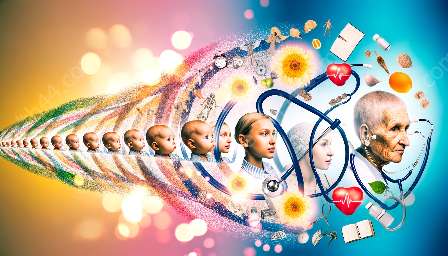As individuals progress through the various stages of life, the process of aging plays a crucial role in shaping their experiences and overall well-being. This guide aims to provide a comprehensive understanding of aging and gerontology, while emphasizing its intersection with lifespan development, health education, and medical training.
Understanding Aging and Gerontology
Aging is a natural and inevitable part of the human experience, marked by a series of biological, psychological, and social changes that occur over time. Gerontology, on the other hand, is the multidisciplinary study of aging and its associated challenges, encompassing fields such as psychology, sociology, biology, and healthcare.
These two interconnected concepts form the foundation of a diverse and dynamic field that seeks to unravel the complexities of aging, address age-related issues, and promote healthy aging across the lifespan.
Impact on Lifespan Development
Lifespan development is the study of how individuals grow, adapt, and change across their entire lives. Aging and gerontology significantly influence this process by shaping the physical, cognitive, and socioemotional domains of development at each life stage.
From infancy to late adulthood, the aging process introduces unique challenges and opportunities that impact an individual's development. Understanding these dynamics is essential for professionals in fields such as psychology, education, and healthcare, allowing them to provide effective support and interventions tailored to the specific needs of individuals at different stages of the lifespan.
Promoting Healthy Aging: The Role of Health Education and Medical Training
Health education and medical training are instrumental in equipping individuals and healthcare professionals with the knowledge and skills necessary to understand, address, and promote healthy aging.
By incorporating principles of gerontology and lifespan development, health education programs can empower individuals to make informed choices about their health and well-being as they age. Similarly, medical training plays a critical role in preparing healthcare providers to deliver age-sensitive care, diagnose age-related conditions, and develop personalized treatment plans for older adults.
Conclusion
With a deeper understanding of aging and gerontology, integrated within the framework of lifespan development, health education, and medical training, individuals and professionals are better equipped to navigate the complexities of aging and promote wellness across the lifespan. Embracing the diverse dimensions of aging fosters a more inclusive and compassionate approach to addressing the evolving needs of individuals as they age.


